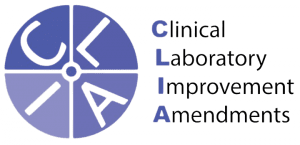
Perhaps one of the more important types of DNA testing, forensic DNA testing is essential in helping to determine missing information in a crime scene investigation. It can determine information from the victim or suspects such as determining the conditions of a suspect during a crime. It can also pull up on other unknown information surrounding a crime that was not easily discerned without testing. As with any criminal case, it’s important to rely on professional services as far as the process of solving a case. If you have any inquiries, be sure to do your research and get in touch with a professional DNA testing company. Here is some information regarding forensic DNA testing that may prove useful to you.
When did forensic DNA testing start?
Forensic DNA testing started as a process by Jeffreys in connection with Dave Werrett and Peter Fill of the Forensic Science Service (FSS) when it was first used in solving the murder of two teens who were raped and murdered in Narborough, Leicestershire in 1983 and 1986.
How does forensic DNA testing work?
Forensic DNA testing is typically used with deposited materials at a crime scene and compared to known samples taken from a victim or suspect. Most of these DNA samples are then submitted to a lab to extract the DNA from the cell. There are then additional steps or methods used in the process of forensic DNA testing.
What methods are used to test DNA?
The methods of testing DNA involve four steps that encompass extraction, quantitation, amplification, and capillary electrophoresis. With the incorporation of forensic DNA testing, techniques have been developing rapidly with given methods of analysis. Such methods include short tandem repeats, dot blots of allelic sequence information, mitochondrial sequence determination and restriction fragment length polymorphisms.
How does forensic DNA testing work?
- Extraction
- Quantitation
- Amplification
- Capillary Electrophoresis
- DNA Profiling

DNA Profiling
DNA profiling will be used as a forensic technique with forensic DNA testing in a criminal investigation in order to compare a criminal suspect’s profile to DNA evidence. This will determine the likelihood of a criminal suspect’s involvement in a crime. DNA profiling is also used with other cases like to establish immigration eligibility, parentage, and can also help with medical and genealogical and research.
What do forensic toxicologists do?
Forensic toxicologists perform scientific tests on tissue samples as well as bodily fluids in order to determine if there are any chemicals or drugs in the body. As far as investigating a crime a forensic toxicologist will be part of the team investigating and will have the job of isolating and identifying any substances in the body that could have contributed to the crime.
What degree does a forensic DNA analyst need?
The degree that’s required for DNA analysis is a Bachelor’s degree in forensic science, biology or chemistry with a good amount of course work in molecular biology, genetics, statistics, and biochemistry.
How long does forensic DNA testing take?
Forensic DNA testing takes about 24-72 hours but the amount of time that it takes to take DNA from a crime scene can span as long as 14 days. With this, it can sometimes be the case that suspects have been released by the time results come around.
Problems With Forensic DNA Testing
It’s important to have forensic DNA testing that’s reliable especially when they’re needed for evidence in court cases. This will lie in the reliability of a laboratory with its analysis processes like following the recognized standard of disclosure. Even in civil (noncriminal) cases like paternity or proof of death the standard of admissibility must be high in case of DNA evidence not being positive.
How accurate is forensic DNA testing?
There is no test that will result in 100% accuracy as there are many factors that can determine results.
Can you refuse to give a DNA sample to the police?
Some states will only allow using reasonable force after a court order has been granted in order to obtain a sample for forensic DNA testing. Certain jurisdictions may have the refusal of providing a DNA sample deemed as a crime that is punishable by a fine and imprisonment.
Get Professional Assistance When Necessary
Be sure to get in contact with a reliable professional laboratory regarding your need for forensic DNA testing in Merriville, IN. A well-established DNA testing lab will be able to properly follow guidelines and protocol regarding the processes of analysis and further the investigation of a case. In connection to DNA testing, related services like having theft and vandalism insurance claim help can be useful if applicable. Get the answers that you need for legal matters with the incorporation of forensic DNA testing. Get in touch with a professional lab today to get the process started.
If you need forensic DNA testing please call (800) 219-4362



















